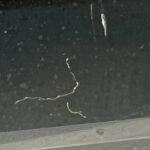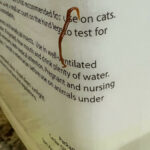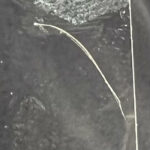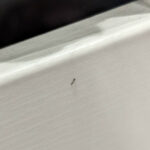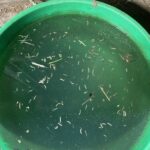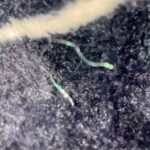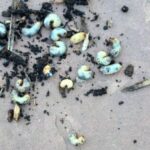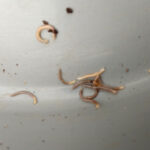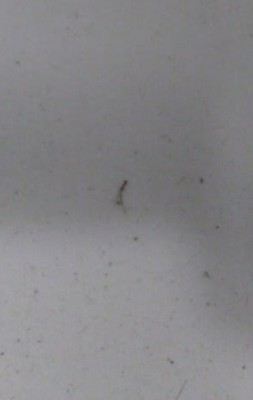Its true, leeches are slimy, they’re blood sucking and yes, their “bites” are unpleasant to say the least. These odd creatures attach themselves to a host (humans are preferred) and they suck blood from the body. This makes leeches sanguivorous – they feed as blood sucking parasites that can ingest more than several times their own body weight in blood in one single “meal.” While a leech would love nothing more than to feed off human blood, they also feed on fish, frogs, turtles, and birds. They even feed off other leeches. Before we discuss how to treat leeches on the skin, continue reading to learn more about the lifestyle of the leech.
According to the Australian Museum, leeches are classified according to the different ways they feed. Some leeches have powerful jaws, while others are jawless. Some simply feed, while others swallow prey whole.
Jawed leeches or Gnatbobdellida have jaws armed with teeth with which they bite the host. The blood is prevented from clotting by production of a non-enzymatic secretion called hirudin. The land leech commonly encountered by bushwalkers is included in this group.
Jawless leeches or Rhyncobdellida insert a needle-like protrusion called a proboscis into the body of the host and secrete an enzyme, hemetin which dissolves clots once they have formed. Leeches which live on body fluids of worms and small freshwater snails possess such an apparatus.
The worm leeches or Pharyngobdellida have no jaws or teeth and swallow the prey whole. Its food consists of small invertebrates. –The Australian Museum, http://australianmuseum.net.au/
Whether jawed or jawless, leeches may be freshwater, terrestrial, or marine. Land leeches may be found in wet rain forests in low foliage or dry forests on the ground in seepage moistened areas. This does not mean that you won’t find them in puddles of water in rain forests. Although land leeches cannot swim, they can survive for a period of time under water. Some species burrow in the soil until it rains. While in the soil, the body is dry. After only a light rain, sprinkles even, the leech will emerge “fully active.” Freshwater leeches prefer slowly flowing or still streams. However, it is not uncommon to find them in fast flowing streams.
While leeches are not known to transmit disease, they can cause irritation and other allergic reactions in hosts as well as an infection or blood poisoning. In addition, a leech bite can bleed for hours if not treated. First, you must remove the leech by pushing the leech off the skin from the skinny end. Push the leech sideways to prevent the leech from discharging the contents of its gut into the bite. This can cause an infection and possible blood poisoning. Again, this is the best technique for removing leeches. Techniques such as ripping the leech off without thinking, heating it or pouring salt over it can be dangerous.
To repel leech bites, rub soap lather on exposed areas of the skin and let it dry. You may also apply eucalyptus oil, tropical strength insect repellent, or lemon juice to the skin and even the clothing. Leech socks are also extremely effective in protecting the skin from leeches. Leech socks are tightly woven, light-colored “socks” that fit over outer garments.
After you have safely removed the leech, you should wash the wound with soap and water and apply a cold pack if pain or swelling is present. Keep the wound clean until it heals. If you follow these steps, and you have no leech allergies and are in good health, you should have no problems healing. If you experience swelling around the lips and eyes, red blotches on the skin, an itchy rash, infection, or ulcer, go to the hospital immediately.
All About Worms is always free, always reader-supported. Your tips via CashApp, Venmo, or Paypal are appreciated! Receipts will come from ISIPP Publishing.



